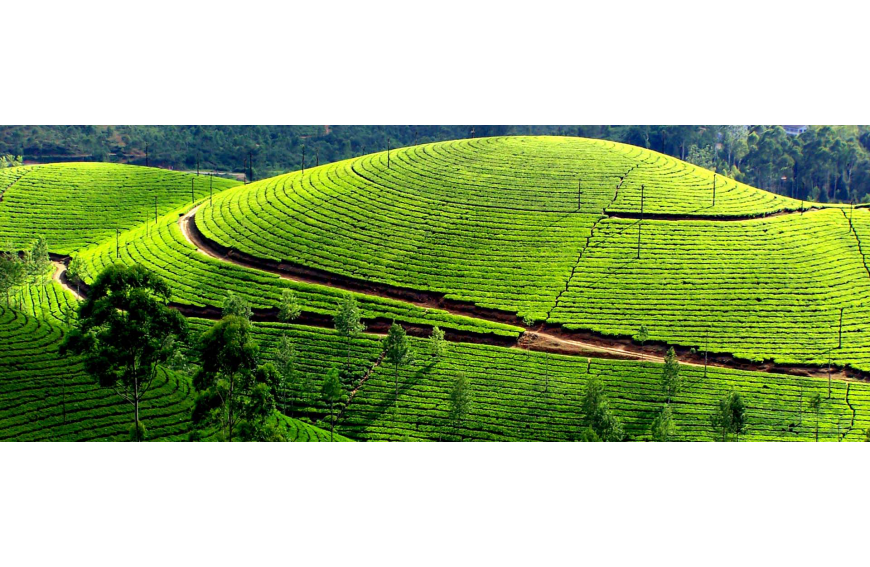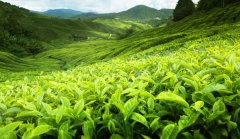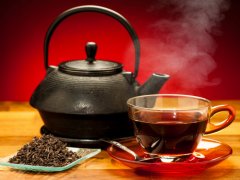Why is Sri Lanka black tea better than Chinese black tea? Is Ceylon tea passed down from China?
Ham and luncheon meat in tea
To me, good tea and popular tea are completely different products. It is more different than single slices of Brie de Meaux and Kraft Cheese; or ham is the difference between luncheon meat. On the other hand, few people realize this because there is a lack of access to this quality for the public. I can have a luncheon meat sandwich once in a while, but I can't associate bottled tea with tea at all. For me, the real thing is essential. It is my daily simple happiness and health help. This is the core motivation for me to promote it.
However, there are more taste buds to satisfy.
True fairness comes from empowerment.
Mass market tea produced through automation and low-skilled labour accounts for more than 80 per cent of the tea trade. The rest are oolong tea (including low-grade), handmade tea (also known as textured tea, that is, the appearance of hand-made tea) and a small part of fine tea. The situation is improving, but only gradually.
Given this product structure (and the western-dominated near-cartel trading system, which is also a problematic topic), most tea production stays in the early industrial era, when resources and capital were in the hands of a few people. Because workers do not need too many skills, they are considered to be expendable. Their working conditions reflect this. Production areas around the world are telling horror stories that I never imagined before.

Any system derived from cartels in the name of "fairness" to workers is weak, if not a fable. In my opinion, only by empowering workers can they have a better basis to negotiate with capitalists, whether in terms of working conditions or wages. Only through the demand for production skills can workers gain power, which is a symbol of fairness. In the capitalist world, when the value of workers is part of production resources, capitalists have no choice but to take it as part of the cost. No other "serious" plan based on the "goodwill" of the capitalists can provide the same guarantee. This is why I like traditional hand-made tea rather than the main food, because of their requirements for workers' skills.
For the benefit of everyone.
Take the production of Phoenix oolong tea as an example. China's agricultural workers earn an average of about $200 a month, while tea farmers in the region can buy property in nearby cities to invest. Their tea pickers (the lowest paid) earn between $35 and $45 a day, plus benefits such as train tickets and accommodation-more than six times the average and many times higher than the Indian subcontinent and Africa. Farmers even have to compete with better welfare programs to hire them, especially during peak seasons, as the quality of picking directly affects the quality of their products. The traditional Phoenix Oolong tea is well received, and the demand in the domestic market alone is enough to sustain its growth.
Since there is no single "big brother" tea factory or tea garden in the whole region, small tea gardens are competing to produce better tea at better prices. As the quality improves, so will the money paid to everyone on the production line to maintain the quality of production skills. Workers, through the demand for this kind of production skills, are competitive and not easy to replace.
Important Notice :
前街咖啡 FrontStreet Coffee has moved to new addredd:
FrontStreet Coffee Address: 315,Donghua East Road,GuangZhou
Tel:020 38364473
- Prev

Which would you prefer Sri Lanka or Ceylon black tea? Where should I buy it? How does Ceylon black tea taste?
Evaluation notes of Wuwa handmade black tea the tea we see here has been best dried and has no smell of fuel or smoke, which I think is incredible for the original setting. Its immersion has good lightness and sharpness. Meticulous post-harvest treatment is shown in the clarity of taste, which is a rare South Asian product. This non-ambiguous characteristic reflects that in time, protection
- Next

How to look at black tea? How to choose black tea the method of distinguishing the advantages and disadvantages of black tea is explained in detail
The importance of quality I am not saying that all tea workers in China are in a similar ideal state, at least when most tea production still focuses on price competitiveness rather than quality advantage. However, as more consumers begin to understand and demand quality, producers will be under pressure to learn to reward workers for better skills. It is not through the artificial setting up of third-party supervision.
Related
- Can lightly roasted coffee beans be used to extract espresso? How finely should you grind high-quality coffee beans to make Italian latte?
- What is the difference between the world's top rose summer coffee and Yejia Shefi? What are the flavor characteristics of Yega Shefi coffee and Panama rose summer?
- The ceremony is full! Starbucks starts to cut the ribbon at a complimentary coffee station?!
- A whole Michelin meal?! Lucky launches the new "Small Butter Apple Crispy Latte"
- Three tips for adjusting espresso on rainy days! Quickly find the right water temperature, powder, and grinding ratio for espresso!
- How much hot water does it take to brew hanging ear coffee? How does it taste best? Can hot water from the water dispenser be used to make ear drip coffee?
- What grade does Jamaica Blue Mountain No. 1 coffee belong to and how to drink it better? What is the highest grade of Blue Mountain coffee for coffee aristocrats?
- What are the flavor characteristics of the world-famous coffee Blue Mountain No. 1 Golden Mantelin? What are the characteristics of deep-roasted bitter coffee?
- Can I make coffee a second time in an Italian hand-brewed mocha pot? Why can't coffee be brewed several times like tea leaves?
- Hand-brewed coffee flows with a knife and a tornado. How to brew it? What is the proportion of grinding water and water temperature divided into?

